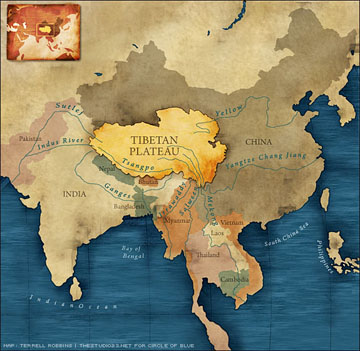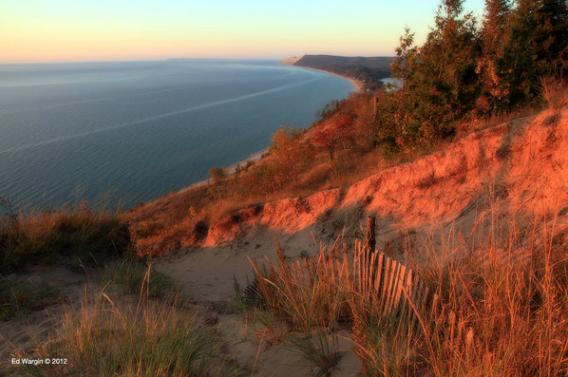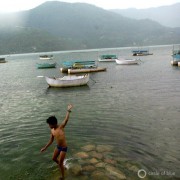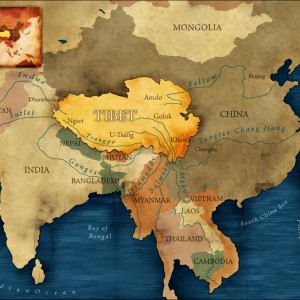Tibetan Plateau Water Reserves at Risk
Over at Circle of Blue WaterNews, we’re reporting today on another ingredient to consider in the context of the China-Tibet conflict. Keith Schneider and C.T. Pope write that the Tibetan Plateau’s vast reserves of glacial freshwater, which supply Asia’s most populous regions, are both at risk and are emerging as an issue in the increasingly tense political and cultural strife between China and Tibet.
 “At least 500 million people in Asia and 250 million people in China are at risk from declining glacial flows on the Tibetan Plateau,” Rajendra K. Pachauri, chairman of the Intergovernmental Panel on Climate Change (IPCC) and winner of the 2007 Nobel Peace Prize, told me last week. “This is one of the great concerns — a staggering number of people will be affected in the near future. There aren’t too many researchers who have looked at this water situation and its far-reaching impacts.”
“At least 500 million people in Asia and 250 million people in China are at risk from declining glacial flows on the Tibetan Plateau,” Rajendra K. Pachauri, chairman of the Intergovernmental Panel on Climate Change (IPCC) and winner of the 2007 Nobel Peace Prize, told me last week. “This is one of the great concerns — a staggering number of people will be affected in the near future. There aren’t too many researchers who have looked at this water situation and its far-reaching impacts.”
As we’ve heard many times, the UN estimates that two-thirds of the world’s population will live in areas of water stress within the next 20 years. By the numbers, much of that population is in Asia.
With more than a quarter of its land classified as desert, China has long sought Tibet’s water resources. Yet the IPCC and others warn that the Himalayan glaciers are receding faster than anywhere in the world and could vanish within three decades.
Said Geoff Dabelko, director of the Environmental Change and Security Program at the Woodrow Wilson International Center for Scholars in Washington, D.C., “Nearly two billion people are in some way dependent on water originating on the Tibetan Plateau. By definition, that makes it high politics and critically important in a politically strategic sense.”
Hear the full interview with Dr. Dabelko on Huffington Post, as well as excerpts from the latest Journal of International Affairs, which illuminates water’s role in transboundary cooperation and conflict resolution.
J. Carl Ganter is co-founder and managing director of Circle of Blue. He is a journalist and photojournalist, recipient of the Rockefeller Foundation Centennial Innovation Award, and an Explorers Club Fellow.









Leave a Reply
Want to join the discussion?Feel free to contribute!